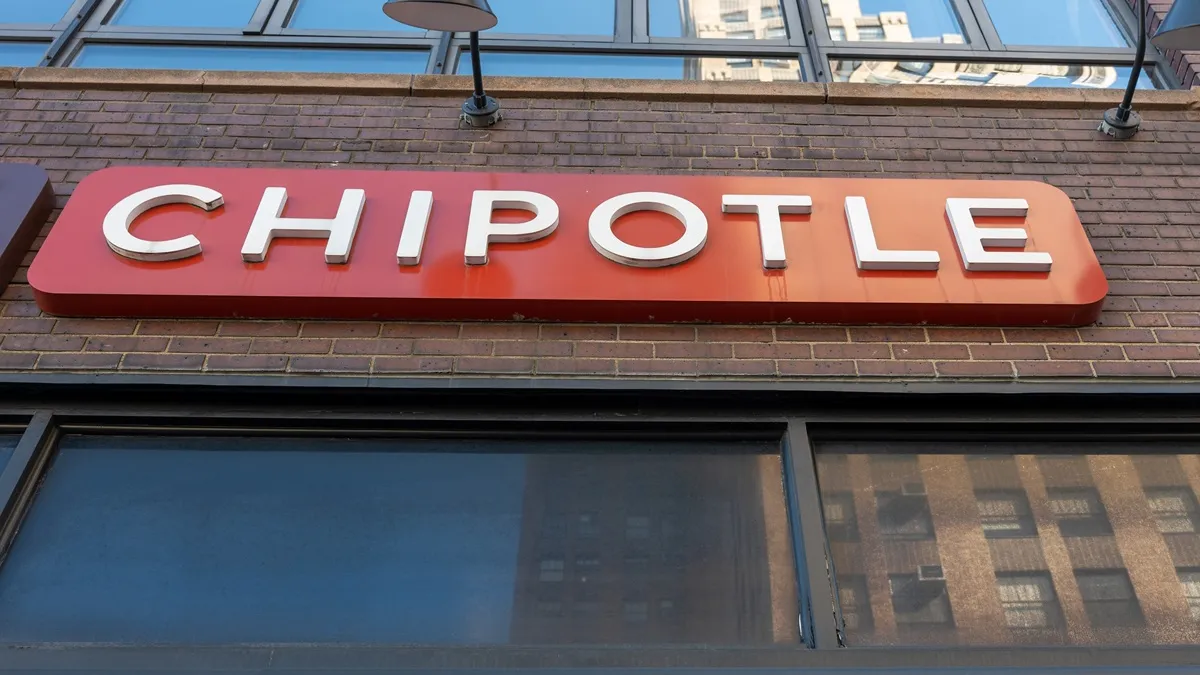Dive Brief:
- Chipotle Mexican Grill invested in two ventures addressing meat's climate impact, including technology to reduce methane emissions from cow burps, the company said Wednesday.
- The restaurant chain's venture fund Cultivate Next announced a minority investment in CH4 Global, which is scaling a cattle feed supplement made from red seaweed that lowers methane emissions up to 90%, according to its website.
- Chipotle also invested in Plantible, a company that produces plant-based protein from the aquatic plant Lemna, also known as duckweed. The protein can mimic the quality, taste and texture of meat and can replace synthetic emulsifiers and binders in the food industry.
Dive Insight:
Chipotle's venture fund has invested millions of dollars in innovations throughout the restaurant supply chain, from autonomous farming robots to avocado processing machines.
The company's latest investments are centered around reducing livestock emissions while building out plant-based alternatives that could eventually land on Chipotle's menu. As consumer demand for plant-based meat wanes, food companies have begun to address the climate impact of livestock production as a way to address sustainability.
Methane-cutting feed supplements have emerged as a promising solution to address emissions from cattle, which have a significant impact on global warming. Methane is the second-largest contributor to climate warming after carbon dioxide, with livestock production accounting for an estimated 37% of methane emissions.
"As we all work toward the goal of minimizing global greenhouse gas emissions, it's vital for us to invest in companies like CH4 Global that are engineering scalable solutions to reduce harmful global emissions," Christian Gammill, Chipotle Cultivate Next Fund manager, said in a statement.
While Chipotle looks to lower the environmental impact associated with traditional meat, it's also seeking to expand options for plant-based protein alternatives. Chipotle participated in Plantible's $30 million fundraising round in November as the startup looks to scale production of Rubi Protein from aquatic plants.
Plantible produces the plant-based protein out of a 100-acre aquafarm facility in West Texas known as "The Ranchito." The company's Rubi Protein is meant to be a clean-label alternative to current plant-based ingredients on the market, and can be used as an ingredient to replace synthetic emulsifiers and binders.
"Investing in a like-minded venture that strives to transform the global food supply could help the entire industry unlock new opportunities for plant-based menu offerings," Curt Garner, chief customer and technology officer at Chipotle, said in a statement.











